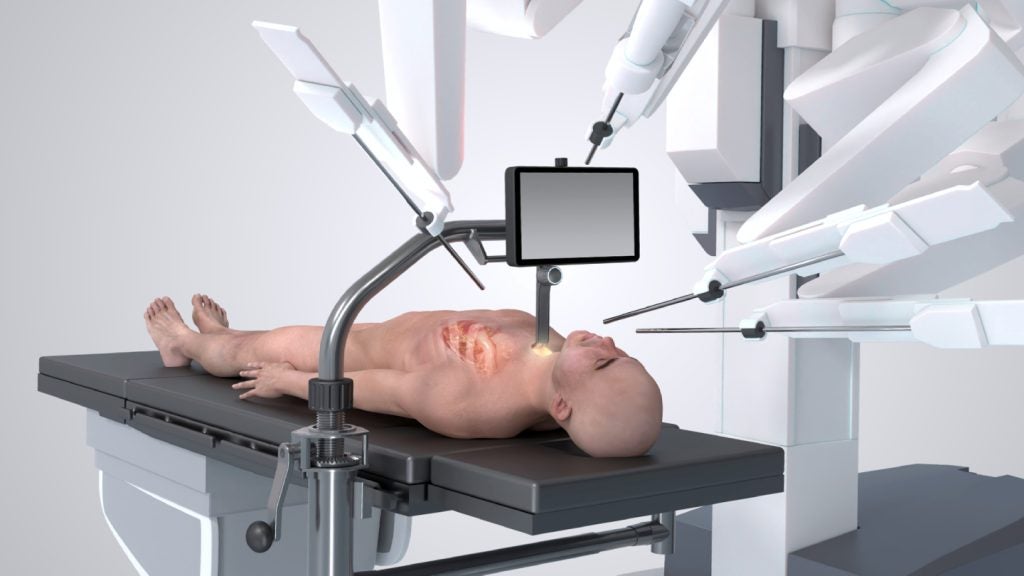Scottish robotics company CardioPrecision has unveiled a ‘proof-of-concept’ robotic procedure designed to implant an aortic valve replacement through a small incision following successful procedures on cadavers.
The company originally spun out of the UK’s National Health Service (NHS) through InnoScot Health, has demonstrated its Advanced Videoscopic Aortic valve Surgery by Transcervical Approach using Robot-assistance (AVATAR) procedure at the Chicago University of Medicine.
AVATAR uses the company’s CoreVista Robot Enabling Platform to significantly speed up and simplify cardiovascular procedures. The procedure also made use of the Perceval Plus sutureless aortic heart valve from UK-based medical device manufacturer Corcym.
CardioPrecision’s chief medical officer and consultant cardiothoracic surgeon Fraser Sutherland worked alongside Rocco Bilancia, consultant thoracic surgeon at Scotland’s Golden Jubilee University National Hospital, to demonstrate its AVATAR project to the US market.
Ying Sutherland, chief executive of CardioPrecision, said: “The main benefit of performing surgery via the transcervical approach – making a small incision in the neck – is that this is a very well-circulated area that heals quickly with little or no pain. Most operations done through the neck are performed as day cases.
“Our CoreVista Robot Enabling Platform therefore opens up the groundbreaking possibility of day case aortic valve surgery, a massive step forward in the field.”
A report by GlobalData predicts that the surgical robotics market will be worth $10.3bn by 2030, at the same time a market model by GlobalData estimated the global transcatheter aortic valve replacement market was worth $6.2bn in 2021, with that figure rising to $18.8bn in 2023.
The US-based demonstration comes on the heels of a £20m ($25m) grant from the Scottish Government for ten up-and-coming surgical robots aimed at enabling less invasive procedures and boosting hospital capacity across Scotland.
Fraser Sutherland said: “The first transcervical surgical aortic valve replacement was performed by Professor Otto Dapunt and myself using the CoreVista platform some years ago.
“However, surgery has moved on since and the robot now provides surgeons with the technical dexterity needed to allow these complex operations to be performed by a majority of heart surgeons.
“It opens the door to widespread adoption of this technique which could ultimately benefit patients worldwide.”
Elsewhere in the Scottish healthcare robotics scene, Scottland’s National Robotarium was awarded £435,000 ($570,000) to push to market a robotic glove designed to give pressure feedback to the wearer so as to restore dexterity in patients who had previously survived a stroke.









